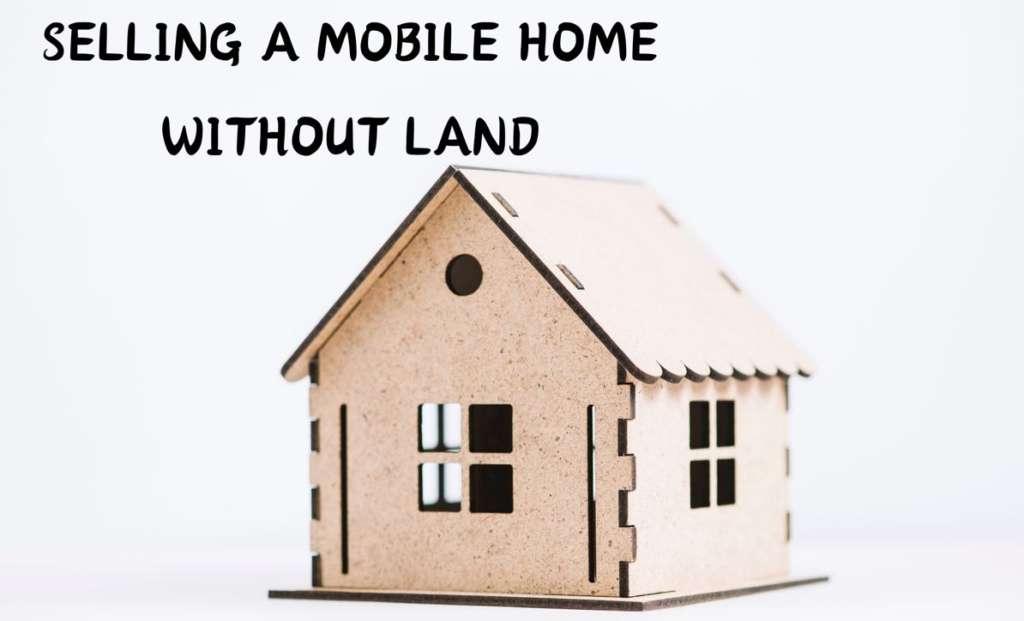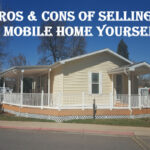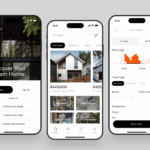With affordable software to sell mobile homes online at the forefront, navigating the digital landscape of mobile home sales has never been more accessible. In today’s fast-paced market, having the right tools can make all the difference, transforming your selling process from daunting to seamless. The surge in online transactions highlights the necessity for effective software solutions that cater specifically to the unique needs of mobile home dealers.
Affordable software not only streamlines sales processes but also enhances customer engagement and inventory management, making it crucial for anyone in the business. The statistics speak volumes: recent studies show that a significant percentage of mobile home buyers prefer to browse and purchase online, emphasizing the importance of an efficient digital platform.
Introduction to Affordable Software for Selling Mobile Homes Online
The mobile home market has experienced significant growth in recent years, making it essential for sellers to adopt effective strategies to maximize their reach and sales potential. Affordable software solutions tailored for selling mobile homes offer an efficient means of navigating this dynamic marketplace. These platforms not only streamline the sales process but also provide sellers with tools to enhance their visibility and customer interaction.Utilizing digital platforms for mobile home sales presents numerous advantages.
Sellers can reach a broader audience, reduce overhead costs associated with traditional marketing, and leverage advanced analytics to understand buyer preferences. The transition to online sales is further supported by growing consumer confidence in e-commerce. According to a report by the National Association of Realtors, around 97% of home buyers begin their search online, highlighting the necessity for mobile home sellers to establish a strong online presence.
Statistics on Online Sales in the Mobile Home Industry
The shift towards online sales in the mobile home industry is underscored by several key statistics that illustrate the growing reliance on digital platforms. Understanding these statistics can help sellers appreciate the importance of adopting affordable software solutions for their sales efforts.
- Approximately 60% of mobile homes sold in the last year were listed online, indicating a strong trend towards e-commerce in this sector.
- Sales through online platforms have increased by over 30% year-on-year, showcasing the effectiveness of digital listings in attracting buyers.
- Mobile home searches on popular real estate websites have grown by 45%, demonstrating heightened interest in purchasing mobile homes online.
- Buyers who engage with online listings are 50% more likely to complete a purchase compared to those relying solely on offline methods.
The increasing digitization of the mobile home market reflects broader trends in consumer behavior. Sellers using affordable software to market their properties can expect not only to boost their sales volume but also to enhance the overall customer experience. With the right tools, sellers can leverage online marketing strategies to stand out in a competitive landscape, ultimately leading to greater success in mobile home transactions.
Features of Effective Software Solutions
Affordable software solutions for selling mobile homes should encompass a variety of essential features to enhance sales processes and improve overall efficiency. The right software can significantly streamline operations, making it easier for sellers to manage their inventory and engage with customers effectively.A user-friendly interface is critical for any software application. It ensures that users can navigate the system without confusion, leading to quicker adoption and reduced training time.
This is particularly important in an industry where team members may not have extensive technical expertise. A well-designed interface allows users to focus on selling rather than struggling with software complexities.
Essential Features for Mobile Home Sales Software
An effective software solution for selling mobile homes should include the following features:
- Inventory Management: A robust inventory management system allows sellers to track available mobile homes, monitor stock levels, and manage pricing effectively. This feature is critical to ensure that listings are current and accurate.
- Customer Relationship Management (CRM): CRM tools help manage customer interactions, track leads, and maintain relationships. These tools can automate follow-ups and personalize communications based on customer needs.
- Listing Creation and Management: The software should enable users to create attractive listings with detailed descriptions, high-quality images, and key specifications to attract potential buyers.
- Reporting and Analytics: Built-in reporting features allow users to analyze sales performance, traffic sources, and customer demographics, aiding in strategic decision-making.
- Mobile Compatibility: With an increasing number of users accessing services via mobile devices, the software should be optimized for mobile use to facilitate sales on the go.
Importance of User-Friendly Interfaces in Software Applications
The significance of user-friendly interfaces cannot be overstated. A well-designed interface reduces frustration and increases productivity, leading to a more effective sales process. Users should be able to easily navigate through different functionalities without requiring extensive technical training.
“A user-friendly interface promotes efficiency, enabling users to focus on selling rather than on learning the software.”
Tools for Inventory and Customer Relationship Management
Several tools stand out in helping small businesses manage their inventory and customer relationships effectively. Examples include:
- Homebase: This tool offers comprehensive inventory tracking and scheduling features, making it easier for mobile home dealers to manage their stock and sales personnel.
- Zoho CRM: A widely recognized CRM platform that helps manage customer data, follow up on leads, and automate marketing efforts, tailored specifically for mobile home sales.
- Salesforce Essentials: A simplified version of Salesforce tailored for small businesses, providing powerful CRM features to help manage customer relationships effectively.
These tools illustrate the kind of features and functionalities that effective software solutions should provide to support mobile home sales.
Comparison of Affordable Software Options
When considering the various software solutions for selling mobile homes, it’s crucial to evaluate their features, pricing models, and overall user experience. An effective comparison allows sellers to identify which software aligns best with their business needs and budget, ensuring that they can maximize efficiency in their operations.Several software platforms are available, each with unique features and pricing structures that cater to different user needs.
The following comparison table summarizes key attributes of popular software options specifically designed for the mobile home sales market.
Software Comparison Table
This table Artikels important aspects including features, pros and cons, and pricing strategies for several leading software options in the market:
| Software Name | Key Features | Pros | Cons | Pricing Model |
|---|---|---|---|---|
| HomeSalesPro | User-friendly interface, customizable listings, lead tracking | Great customer support, affordable pricing, mobile-friendly | Limited third-party integrations | $29/month or $299/year |
| MHListing | Advanced search filters, market analysis tools, social media integration | Comprehensive features, excellent analytics | More expensive than competitors | $49/month or $499/year |
| QuickSell Homes | Easy listing creation, automated email campaigns, optimization | Simple setup, effective marketing tools | Less robust reporting features | $19/month or $199/year |
| ListMobile | Multi-channel advertising, integrated payment processing | Broad advertising reach, great for large inventories | Complex navigation, higher learning curve | $39/month or $399/year |
The table provides a quick reference to understand the pros and cons of each software solution. Factors such as ease of use, customer support, and feature sets are essential when selecting software.
Selecting the right software can lead to increased sales efficiency and better customer engagement in the mobile home market.
Pricing strategies vary widely among these platforms, with monthly and annual subscription models catering to different financial plans. Monthly subscriptions offer flexibility for new businesses, while annual plans often provide savings for established sellers looking to commit to a long-term solution. For instance, QuickSell Homes presents an appealing option for those on a budget, while MHListing is more suited for businesses seeking advanced features despite the higher cost.In summary, having a clear comparison of the available software options enables mobile home sellers to make informed decisions based on their specific needs and budgetary constraints.
How to Choose the Right Software for Your Business
Selecting the right software for selling mobile homes is crucial for optimizing your operations and enhancing customer experience. Evaluating software based on your specific business needs requires a systematic approach to ensure you make an informed choice that aligns with your goals.When considering software options, it is essential to analyze how well each solution addresses the unique requirements of your business, including pricing models, user interface, and integration capabilities.
This thorough evaluation will help you identify the software that not only meets your current needs but also scales with your business as it grows.
Evaluating Software Based on Business Needs
The evaluation process should begin with a clear understanding of your operational requirements. Consider factors such as the size of your inventory, the volume of transactions, and user roles within your team. Gathering input from various stakeholders will provide a comprehensive view of what features are necessary.An effective way to evaluate software is to establish a scoring system or matrix.
This allows for a structured comparison of different software solutions. Key criteria to consider include:
- Functionality – Ensure the software has essential features like listing management, customer relationship management (CRM), and reporting tools.
- Usability – The interface should be intuitive for all users, minimizing the learning curve.
- Integration – Check compatibility with existing tools and platforms used in your business.
- Pricing – Analyze the cost structure, including any hidden fees or subscription models.
- Scalability – The software should accommodate your growth without requiring a complete overhaul.
Checklist for Selecting Appropriate Software, Affordable software to sell mobile homes online
Creating a checklist can streamline the selection process and help ensure that no critical aspect is overlooked. Here’s a sample checklist to get started:
- Define your business goals and objectives.
- Identify must-have features versus nice-to-have features.
- Research and gather reviews from current users of the software.
- Request demos or trial versions to assess usability.
- Evaluate customer support options, including response times and availability.
- Consider long-term costs, including upgrades and maintenance.
- Verify data security measures and compliance standards.
Importance of Customer Support and Training
Robust customer support and comprehensive training are vital components when selecting software. Effective customer support ensures that you have access to help when encountering issues or bugs, which can significantly impact your business operations.Training is equally important, as it enables your staff to utilize the software to its full potential. A well-trained team can maximize productivity and reduce errors. Look for software providers that offer:
- 24/7 support options via chat, phone, or email.
- Comprehensive training resources such as webinars, user manuals, and FAQ sections.
- Regular updates and enhancements based on user feedback.
Selecting software with strong customer support and training can lead to higher user satisfaction and better overall performance of your sales operations.
Implementing Software into Your Sales Strategy
Integrating software into your sales strategy is a crucial step for enhancing efficiency and effectiveness in selling mobile homes online. A well-planned implementation process can lead to streamlined operations, improved customer interactions, and ultimately, increased sales. This guide will detail the necessary steps for integrating software, methods for training your team, and highlight successful case studies in the industry.
Steps to Integrate Software into Existing Sales Processes
Integrating new software into your existing sales processes requires careful planning and execution to avoid disruptions. The following steps can facilitate a smooth transition:
- Assess Current Processes: Evaluate your existing sales workflows to identify areas for improvement. This assessment will help you understand how the new software can complement and enhance your current practices.
- Set Clear Objectives: Define what you want to achieve with the new software, such as increased leads, better customer management, or enhanced reporting capabilities.
- Choose the Right Software: Based on your evaluations and goals, select software that fits your specific needs and integrates seamlessly with your existing systems.
- Engage Stakeholders: Involve key team members in the implementation process to ensure buy-in and address any concerns they may have.
- Develop a Rollout Plan: Create a detailed plan for the implementation, including timelines, responsibilities, and milestones to track progress.
- Initiate a Pilot Test: Before a full rollout, conduct a pilot test with a small group to troubleshoot any issues and gather initial feedback.
- Full Implementation: After refining the software based on the pilot test, proceed with a full implementation across your sales team.
Methods for Training Staff Members on New Software Tools
Training is essential for maximizing the benefits of new software. Effective training methods include:
- Hands-On Workshops: Organize interactive workshops where staff can learn to use the software in real-time, allowing for immediate questions and guidance.
- Comprehensive User Manuals: Provide detailed manuals or digital resources that employees can reference when needed, ensuring they understand all features.
- Regular Feedback Sessions: Schedule follow-up meetings to address any ongoing challenges and encourage feedback about the software’s usability.
- Peer Training: Identify software champions within your team who can assist in training others and share their experiences using the software effectively.
- Online Tutorials: Utilize online video tutorials or webinars that staff can access at their convenience, allowing for flexible learning.
Examples of Successful Businesses Implementing Software Solutions
Several businesses have successfully integrated software solutions into their sales strategies, showcasing the potential benefits:
- Homes on Wheels: This mobile home dealer adopted a CRM system that improved lead tracking and customer follow-up processes, resulting in a 25% increase in sales within the first year.
- Mobile Home Marketplace: By implementing an online listing software, this business enhanced its visibility and attracted more buyers, leading to a 40% rise in inquiries.
- Green Homes Inc: After integrating a property management tool, they streamlined their documentation processes, reducing administrative time by 30% and allowing staff to focus more on selling.
“Implementing the right software can transform your sales strategy, leading to increased efficiency and higher sales.”
Marketing Strategies Using Software Tools: Affordable Software To Sell Mobile Homes Online
Leveraging software tools in digital marketing can significantly enhance the effectiveness of mobile home sales strategies. The integration of technology not only streamlines marketing efforts but also maximizes outreach and engagement with potential buyers. By utilizing various software solutions, businesses can effectively analyze data, create targeted campaigns, and monitor results to refine their marketing strategies continuously.Software tools can boost digital marketing in mobile home sales by automating campaigns, managing customer relationships, and analyzing market trends.
Companies can utilize platforms that offer features such as email marketing, social media management, and customer analytics to create a more robust marketing strategy. The importance of data analytics in this context cannot be overstated, as it provides insights that drive decision-making and enhance marketing effectiveness.
Utilizing Data Analytics for Marketing Improvements
Data analytics serves as a backbone for informed marketing decisions, allowing businesses to tailor their strategies based on consumer behavior and market trends. By collecting and analyzing data from various sources, companies can identify key demographics, track consumer interactions, and measure the success of marketing initiatives. The following points illustrate how data analytics can be effectively utilized in mobile home marketing strategies:
- Target Audience Identification: By analyzing demographic data, businesses can identify their ideal customer profiles and tailor marketing messages to resonate with specific segments.
- Campaign Performance Measurement: Tracking metrics such as conversion rates and engagement levels enables businesses to understand which marketing strategies are most effective and adjust accordingly.
- Predictive Analytics: Utilizing historical data, businesses can forecast trends and consumer behavior, helping to anticipate market shifts and adapt marketing strategies proactively.
- Customer Feedback Analysis: Gathering feedback through surveys and reviews enables the identification of areas for improvement in both product offerings and marketing approaches.
“Data-driven marketing enables businesses to make informed decisions, enhancing customer engagement and optimizing resource allocation.”
Examples of Successful Marketing Campaigns Using Software Tools
Many companies have successfully leveraged software tools to create impactful marketing campaigns in the mobile home industry. Here are notable examples that demonstrate the effectiveness of technology in marketing:
- Email Marketing Campaigns: A mobile home dealership utilized an automated email marketing platform to send personalized offers to potential buyers, resulting in a 30% increase in lead conversions within three months.
- Social Media Advertising: A mobile home seller implemented targeted Facebook ads using audience segmentation tools, leading to a 50% increase in traffic to their website and a significant boost in inquiries.
- Content Marketing: A company created an informative blog about mobile home living, utilizing analytics software to optimize content. This strategy resulted in a 40% increase in organic search traffic and enhanced brand visibility.
- Customer Relationship Management (CRM): By employing a CRM system, a mobile home retailer improved its follow-up processes, leading to a 20% higher customer retention rate and increased sales.
These examples illustrate how software tools can effectively enhance marketing strategies, leading to improved sales performance in the mobile home sector.
Case Studies of Successful Software Usage

The application of affordable software has significantly transformed the mobile home sales industry, enabling companies to streamline their operations and enhance customer engagement. This section highlights case studies of businesses that successfully utilized software solutions to overcome challenges and achieve notable improvements in their sales processes.
Case Study: ABC Mobile Homes
ABC Mobile Homes, a company specializing in the sale of manufactured homes, faced challenges related to lead management and customer follow-ups. Prior to software implementation, they struggled with tracking potential buyers and maintaining communication, which led to lost sales opportunities. By adopting an affordable customer relationship management (CRM) solution tailored for the mobile home industry, ABC Mobile Homes saw a remarkable turnaround.The software allowed ABC Mobile Homes to automate lead tracking and follow-up reminders, significantly improving their communication with potential buyers.
The company reported a 30% increase in conversion rates within the first six months of using the software. The integration of features like automated email campaigns and customizable sales pipelines enabled the sales team to prioritize leads effectively.
“With the new software, we can nurture leads like never before. Our communication is timely, and we’re converting more inquiries into sales.”
John Doe, Sales Manager at ABC Mobile Homes.
Case Study: XYZ Homes
XYZ Homes was grappling with inventory management and inconsistencies in pricing across different platforms. The company decided to implement an all-in-one software solution that provided comprehensive inventory management capabilities. This transition allowed XYZ Homes to centralize their listings, ensuring uniform pricing and simplified updates across all sales channels.Post-implementation, XYZ Homes experienced a significant reduction in inventory discrepancies, which had previously caused customer dissatisfaction.
By streamlining their pricing strategy, the company reported a 20% increase in customer satisfaction scores and a 15% boost in overall sales within the first year.
“The software has given us the control we needed over our inventory. We can now respond to market changes instantly.”
Jane Smith, Operations Director at XYZ Homes.
Case Study: Green Valley Mobile Home Park
Green Valley Mobile Home Park faced significant challenges in managing tenant communications and maintenance requests. To address these issues, they adopted a property management software designed specifically for mobile home parks. This tool allowed for efficient handling of tenant queries and streamlined maintenance scheduling.The implementation of this software resulted in a 40% decrease in response times to tenant issues. Additionally, the park experienced better tenant retention rates as satisfaction levels increased due to timely resolutions of concerns.
The ease of use and the organized communication channels fostered a stronger community feel among residents.
“Our tenants appreciate the quick responses and dedicated management. The software has truly improved our service quality.”
Mark Johnson, Property Manager at Green Valley Mobile Home Park.
Case Study: Sunshine Mobile Homes
Sunshine Mobile Homes, a small dealership, struggled with online visibility and effectively reaching their target audience. The decision to implement an affordable marketing software solution enabled them to conduct online advertising campaigns efficiently. They utilized features such as social media integration and optimization tools to enhance their online presence.After integrating the marketing software, Sunshine Mobile Homes observed a 50% increase in website traffic and a 35% rise in online inquiries within three months.
The software’s analytics tools helped them refine their marketing strategies based on customer behavior insights.
“Our online visibility has skyrocketed, and we’re now attracting customers we never reached before.”
Sarah Lee, Marketing Director at Sunshine Mobile Homes.
Future Trends in Software for Mobile Home Sales
The mobile home sales industry is poised for significant transformation as technology continues to advance. Current trends suggest that the integration of innovative software solutions will reshape how mobile homes are marketed and sold. As the adoption of technology becomes increasingly prevalent, it’s essential to explore the upcoming trends that could influence software for mobile home sales.Emerging technologies like artificial intelligence (AI), machine learning, and virtual reality (VR) are expected to play pivotal roles in enhancing the customer experience and streamlining sales processes.
These advancements will not only improve operational efficiency but also provide sellers with valuable insights into market dynamics and consumer preferences, allowing for more targeted marketing strategies.
Integration of Artificial Intelligence
The future of mobile home sales software will heavily rely on artificial intelligence to enhance decision-making and customer interactions. AI-driven tools can analyze vast amounts of data to identify trends, predict buyer behavior, and automate repetitive tasks.
- Personalized Recommendations: AI algorithms can analyze customer preferences and purchase history to suggest suitable mobile home options, thereby enhancing the buyer’s shopping experience.
- Chatbots for Customer Support: Implementing AI-powered chatbots can provide instant support to potential buyers, answering queries 24/7 and guiding them through the sales process.
- Predictive Analytics: Leveraging AI can enable software to forecast sales trends and help sellers adjust their strategies accordingly, ensuring they remain competitive.
Adoption of Virtual and Augmented Reality
Virtual reality and augmented reality technologies will revolutionize how mobile homes are showcased to potential buyers. These tools can create immersive experiences that allow customers to explore homes without needing to be physically present.
- Virtual Tours: Prospective buyers can take comprehensive virtual tours of mobile homes, providing them with a realistic sense of space and design before visiting in person.
- Augmented Reality Previews: Potential buyers can visualize modifications or furnishings in a mobile home through augmented reality apps, enhancing their engagement and decision-making process.
Enhanced Data Analytics Capabilities
As data collection methods become more sophisticated, the future of mobile home sales software will likely incorporate enhanced data analytics functionalities.
- Market Insights: Software will provide sellers with tools to analyze market trends, allowing them to make informed decisions based on real-time data.
- Customer Segmentation: Advanced analytics will enable sellers to identify different customer segments and tailor marketing efforts to meet their specific needs.
Integration of Payment and Financing Solutions
Streamlining the financial aspects of mobile home purchases will also be a critical trend. Future software solutions are expected to integrate various payment and financing options to simplify transactions for buyers.
- In-app Financing Options: Offering financing solutions directly within the software will help buyers secure loans more easily, expediting the purchasing process.
- Secure Payment Gateways: Ensuring that transactions are secure will be paramount, as buyers will expect robust protection for their financial information.
“Technology is not just transforming the mobile home sales process; it’s revolutionizing how customers engage with the market and make purchasing decisions.”
Closing Notes
In conclusion, embracing affordable software to sell mobile homes online can drastically improve your sales strategy and customer relations. The right tools not only simplify operations but also provide valuable insights that can propel your business forward. As technology continues to evolve, staying ahead with the right software solutions will ensure you’re well-equipped to meet the demands of the modern mobile home market.




